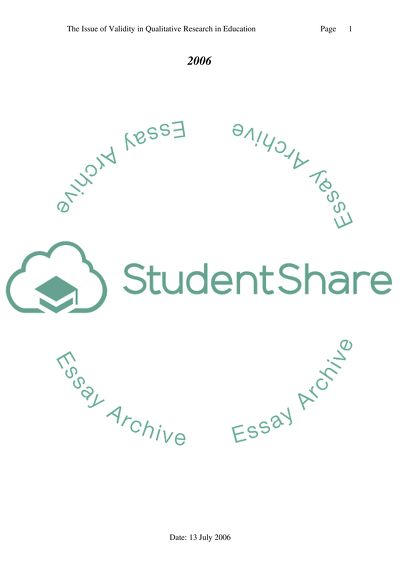Cite this document
(“The Issue of Validity in Qualitative Research in Education Essay”, n.d.)
The Issue of Validity in Qualitative Research in Education Essay. Retrieved from https://studentshare.org/miscellaneous/1537254-the-issue-of-validity-in-qualitative-research-in-education
The Issue of Validity in Qualitative Research in Education Essay. Retrieved from https://studentshare.org/miscellaneous/1537254-the-issue-of-validity-in-qualitative-research-in-education
(The Issue of Validity in Qualitative Research in Education Essay)
The Issue of Validity in Qualitative Research in Education Essay. https://studentshare.org/miscellaneous/1537254-the-issue-of-validity-in-qualitative-research-in-education.
The Issue of Validity in Qualitative Research in Education Essay. https://studentshare.org/miscellaneous/1537254-the-issue-of-validity-in-qualitative-research-in-education.
“The Issue of Validity in Qualitative Research in Education Essay”, n.d. https://studentshare.org/miscellaneous/1537254-the-issue-of-validity-in-qualitative-research-in-education.


